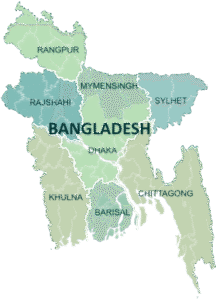https://theworldfinancialforum.com/participate/


Muhammad Yunus, the 85-year-old Nobel Peace Prize winner, is leading the caretaker government as its chief adviser until elections are held.
| Photo Credit: Reuters
Bangladesh’s interim government said on Saturday (August 2, 2025) it will release its slate of democratic overhauls on August 5, the one-year anniversary of the overthrow of the previous autocratic administration.
The South Asian nation of around 170 million people has been in political turmoil since a student-led revolt ousted then-Prime Minister Sheikh Hasina on August 5, 2024, ending her 15-year rule.
Muhammad Yunus, the 85-year-old Nobel Peace Prize winner who is leading the caretaker government as its chief adviser until elections are held, has said he inherited a “completely broken down” system of public administration.
Mr. Yunus previously pledged to unveil a “big package” to overhaul democratic institutions.
But efforts to reach agreements have made slow progress as political parties jostle for power ahead of elections, slated for early 2026.

Mr. Yunus’s government has warned that political power struggles risk jeopardising the gains that have been made.
On July 29, Mr. Yunus said he was working to “build a broad national consensus around a renewed political system — one that delivers inclusive, participatory, and credible elections”.
Mr. Yunus’s office said on Saturday (August 2, 2025) that the “July Proclamation” would be “presented to the nation… in the presence of all political parties involved in the mass uprising”.
Ms. Hasina’s rule saw widespread human rights abuses, including the mass detention and extrajudicial killings of her political opponents.

Her government was also accused of politicising courts and the civil service, staging lopsided elections and dismantling democratic checks on its power.
Ms. Hasina, 77, fled to India, where she has defied court orders to attend her ongoing trial on charges amounting to crimes against humanity.
Protests began on July 1, 2024, with university students calling for reforms to a quota system for public sector jobs.
They culminated on August 5, 2024, when thousands of protesters stormed Ms. Hasina’s palace as she escaped by helicopter.
- Political Fragmentation: Despite initial unity against Hasina’s regime, power struggles are now intensifying between the BNP and its rivals, JI and the NCP, who hold opposing views on the timing and scope of reforms and elections.
- Legacy of the Awami League: The interim government has banned the Awami League from political activity until trials related to the July uprising conclude, raising concerns about inclusivity and potentially undermining the credibility of the next election.
- Slow Progress on Reforms: While reforms are seen as necessary, the NCC process has faced criticism for its lack of inclusivity and the slow pace of implementation, raising questions about whether meaningful change can be achieved before the elections.
- Rule of Law and Human Rights: Concerns remain about the interim government’s use of power, including instances of arbitrary detention and attacks on journalists and dissenting voices. The criminal justice system and security sector also require significant reform.
- Economic Concerns: Amid the political transition, the economy has sputtered, with slowing growth and persistent concerns about poverty and inequality.
Despite the complexities, there’s broad agreement on the need for both reform and free and fair elections to solidify Bangladesh’s democratic transition. The interim government is tasked with the challenging balancing act of pushing for institutional reforms while navigating a fractured political landscape and the urgent need for a credible electoral process. International partners have also pledged support for Bangladesh’s democratic trajectory, but the ultimate success depends on the ability of the country’s political actors to overcome their differences and commit to a shared vision for a truly democratic future.
Published – August 02, 2025 11:20 pm IST